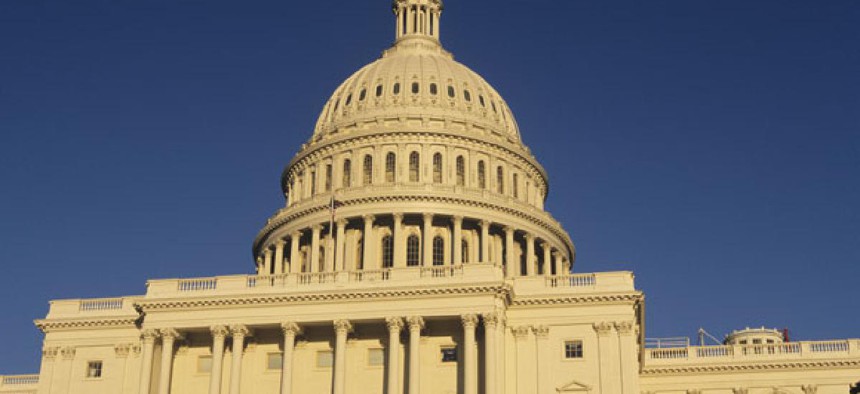
Thinkstock
Analysis: It turns out Democrats could keep the Senate
A mix of factors has combined to give the party a fighting chance of holding their majority.
For Senate Democrats, the 2012 cycle was supposed to be about exposure to the kind of losses that would imperil their majority. Their goal for the cycle was simple: Hang on to control of the chamber by a thread. Just months ago, such an objective seemed like a pipe dream, and for good reason.
In truth, Democrats started the cycle with the weakest hand either party has held in many years. They have to defend 23 of the 33 Senate seats being contested. They are faced with seven retirements, two of which are in solidly Republican states. And they face far more vulnerability. The Cook Political Report rates the Democratic open seat in Nebraska as Likely Republican, while six more races are in the Toss-Up column: Sen. Jon Tester’s in Montana, and those for the open seats in Hawaii, New Mexico, North Dakota, Virginia, and Wisconsin.
By comparison, Republicans just have open seats in Arizona, Maine, and Texas, plus another created when Sen. Richard Lugar lost the GOP primary in Indiana. Today, they only have three races in the Toss-Up category: the one for the open seat in Maine, Sen. Scott Brown’s in Massachusetts, and Sen. Dean Heller’s in Nevada.
With numbers like these, it has been hard to see how Democrats could prevent Republicans from gaining the four seats they need to take control in 2013. But looks can be deceiving, especially in politics.
A mix of factors has combined to give Democrats a fighting chance of holding their majority. For starters, they got some breaks at the hands of Republicans. The first was the decision by Sen. Olympia Snowe, R-Maine, to retire. The seat, which would have been an easy win for Republicans if Snowe had run, is now in danger. Independent Angus King enjoys a comfortable lead in that race today. He says he won’t decide which party to caucus with until after the election, but the conventional wisdom suggests it’s likely to be the Democrats.
The second break came in August, when Rep. Todd Akin, the GOP’s newly minted Senate nominee in Missouri, uttered the words “legitimate rape.” That one phrase transformed his race against Democratic Sen. Claire McCaskill from one of the Republicans’ best opportunities to pick up a seat into one where victory is out of their reach—at least as long as Akin remains in it.
Another factor is recruiting. Democrats managed to recruit strong candidates in races for Republican-leaning seats. In North Dakota, former Attorney General Heidi Heitkamp has kept even in her race against GOP Rep.Rick Berg, who began the contest as the odds-on favorite. Rep. Joe Donnelly in Indiana is another example of a strong Democratic recruit in a red-hued state. Admittedly, he has gotten some help from Republican nominee Richard Mourdock’s missteps.
Democrats haven’t entirely leveled the Senate playing field. They still face more exposure to losses and some hurdles, not the least of which is the presidential race. It is possible that President Obama’s expected weak performance in states such as North Dakota and Indiana may prevent Democratic Senate victories there. And the presidential race appears to be making Senate contests in swing states such as Florida and Ohio more competitive than they were just weeks ago. Finally, Democrats will need to work to slow the momentum that Republican nominee Linda McMahon has in Connecticut, a state that should be an easy win for Democrats.
Democrats are in better shape than they were six months ago. Their hold on the majority is not guaranteed, but their prospects look more promising than they have all cycle.
NEXT STORY: What Women Want






